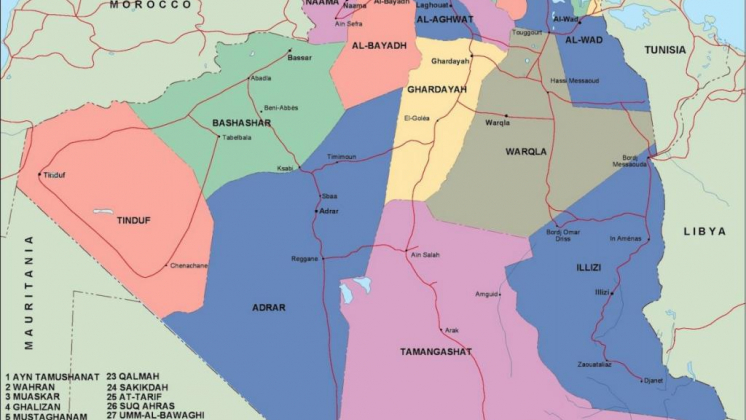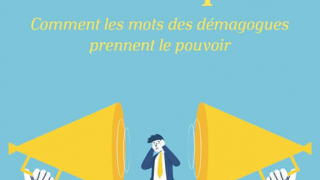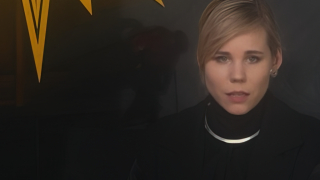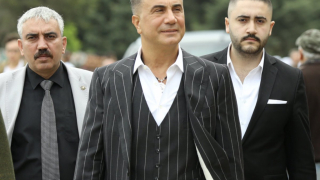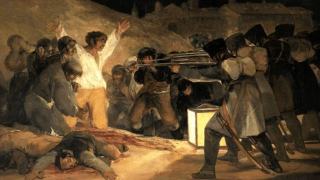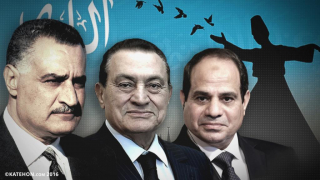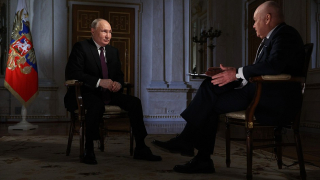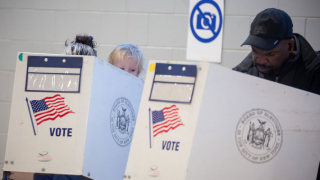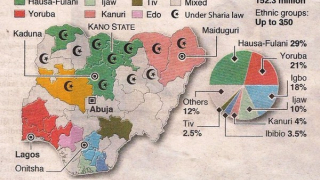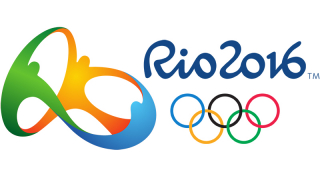The Future of Algeria
13.06.2019
Thousands of Algerians remain on the streets since the Constitutional Council announced that presidential elections scheduled for July 4 will be canceled. A new date has not been set yet.
On April 2 under pressure from protesters and the army President Abdelaziz Bouteflika quit after 20 years in power, but street protests are still going on. The main demands of the protesters are political reforms and the departure of supporters of the former president.
We talked on the prospects of Algeria for the nearest future, main challenges and problems that country must face, with Smaine Djella, independent researcher, Doctor of Science in International Studies University of Algiers 3.
Constitutional Council on Sunday canceled presidential elections that had been scheduled for July 4. What aftermath can this lead to?
Article 102 of the Algerian Constitution, under which President Bouteflika was removed, states, "The President of the Council of the Nation shall assume the function of the Head of State for a maximum period of ninety (90) days, during which presidential elections shall be organized". So, after the appointment of interim president of Algeria Abdelkader Ben Saleh, it was expected that elections would be held on July 4th. However, the date of this election was not easy, because it is not in the interest of some political forces and non-political elements, other ideological and ethnic groups to hold fair elections that may not guarantee their status, a status that has always been achieved through making deals with the former regime. The other thing is the desire of these forces to disrupt the constitutional solutions advocated by the military institution; the unconstitutional forces achieve their interests in unconstitutional situations, and they have a big media machine, which managed to direct the demands of the ‘Hirak’ (protest movement) to reject the elections agenda and even to make people against the national army. These opposed forces belong to the remnants of the former regime and supported by a foreign States, especially France.
So, to what aftermath can lead this situation?
First, it is necessary to distinguish between two types of social movements that reject July elections; the category from "original" protesters that reject the presence of the former regime's leaderships and its supervision of the upcoming elections. The demands of this category are legitimate, and although they are heterogeneous and non-cohesive or organized in a specific parties and movements, they are looking to build the ‘New Algeria’ and they are keen on the election process to choose the new president. Perhaps this category to which the head of State Ben Salah addressed, when he said: "I call upon the political class, civil society and patriotic figures who are jealous of our country and its destiny. I call upon all of them to choose the path of comprehensive dialogue, in order to participate in drawing the way of the consensus track that the State will organize it as soon as possible. I invite them to discuss all concerns related to the forthcoming presidential elections. Then to develop the parameters of a road map to help organize the next presidential vote in an atmosphere of consensus, tranquility and cohesiveness". However, there are, in fact, a large mass who reject the kind of head of State, and it is expected they will put pressure on the Army to remove him in next weeks; especially that Ben Salah is suffering from cancer, and according to the same article 102; “In case of coincidence of the resignation or death of the President of the Republic with the vacancy of the Presidency of the Council of the Nation, for any reason whatsoever, the Constitutional Council shall meet de jure and declare unanimously the permanent vacancy of the Presidency of the Republic and the incapacity of the President of the Council of the Nation. In this case, the President of the Constitutional Council shall assume the function of the Head of State, in pursuance to the terms provided in the preceding paragraphs of this Article and Article 104 of the Constitution”.
The second category is: the dilemma. It composed from all political figures and political forces that belong to the "deep State", that is, the wing of the former intelligence service headed by General Tawfiq and later by General Taratag, who are currently in military prison.
In addition, another force supported by foreign countries led by France and various social movements which has an ideological and ethnic determinant. This category is mobilizing the media and slogans against the road map drafted by the army and refusing to engage in any politico-constitutional processes. It is trying to impose a "transitional phase" where some personalities will be selected to oversee the political process, without returning to the ballot box. It is expected that this category will use ethnic slogans, and stand against the intervention of the army, or it will use the political and fundamentalist Islam card, the threat of terrorism, or to prepare a clash between Kabylian and police, in which elections cannot be organized.
Two weeks ago Algeria’s senior Islamic scholars and preachers launched a political initiative to seek an “urgent” solution to the country’s crisis. Is it possible?
This group can be placed under the second category, the ethnic ideological group that employs ethnicities to achieve political purposes. So, if we examine the human composition of the scientists` signatories who declare this "political initiative", we find them from one ethnic group, namely Amazigh either from Beni Mizab (Ibadites) or from the scholars of Zawawa in the Kabilya region. This statement against proposed constitutional solutions indicates the presence of the ethno-ideological element in the direction of their political demands. Perhaps, "real democracy" do not serve, in some cases, some of its defenders.
On the other hand, the statement announced days after the death of one of the opponents of the regime: Kamal Fakhar, a figure who conspired with foreign countries for the implementation of separatist schemes in the region of Ghardaia known by its sectarian social structures, he contributed to the incitement against the police in a previous confrontation events. However, the symbolism of this personality has changed after his death, turning from a symbol of treason against the nation to a personality of freedom and struggle for liberties. The scientists' statement may have been sectarian in nature, trying to rally the anger of the Mezab sect to press the army and government to secure their place in the post-election context.
Therefore, among the instruments used by the "deep State" in producing social conflict are sectarianism, ethnicity and ideology, just as the French colonizer did to weaken the resistance of the Algerian people and the National Army of Liberation.
Seems that Algeria's transition will be a great challenge. How long can it take and what to expect from this period?
In my point of view, Algeria is witnessing the transition from postcolonial State to the independent and sovereign State. This popular movement, for the first time in Algeria's contemporary history, discuss, in addition to The resignation of Bouteflika and the fight against corruption, the issue of the "Sons of France" (Agents of France in Algeria) and their influence on the administration, resources, culture and, in general, the fate of the Algerian State. This movement has brought to the public the issue of freedom from a regime attached to the "metropole", as well as it will redraw Algeria's natural relations with other countries such as Russia, China, the United States or some EU countries. As a result, we may witness some informal French policies -through Algerian internal agents – seeking to disrupt the next presidential elections, or to demonize the military institution and their proposed solutions. This fraction of agents will not accept any national dialogue or consensus even if the current head of State or prime minister will be removed. For that reasons, and others, the period of transition will take approximately about another 4 months, between the attempts of constitutional solutions, and the pressures of the advocates of "Constituent Assembly" allied with the makers of chaos. Nevertheless, this additional "durée" will allow the Army to conduct speedy trials of the key actors of "deep State" and the pseudo bourgeoisie "the oligarch" involved in a national and international corruption networks.
What external and internal actors are affecting Algeria now?
The history of societies and States affirmed that the decline of dictatorship produced inside these societies a state of conflict and disagreement between, especially, political forces, including the rise of ethnic and sectarian tendencies, or the rise of, as in contemporary realities, the phenomenon called "populism". In Algeria, the "rent" political system reinforced the social and political cleavage and did not permit the emergence of a real opposition forces, the "loyalty" of the system was a standard of a national loyalty. However, with the fall of this system, various social and political components emerged; like Islamists, secularists, radicals, the remnants of the deep State and the former regime, young men and new politicians, the feminist movement, the Muslim Brotherhood or Shia… etc. These components has two choices: the army's choice of holding presidential elections as soon as possible, or the "deep State" choice that complicates the situation and employs some personalities from identified ethnic group and Francophiles under the directives of their imprisoned general "Tawfik" in order to thwart the attempts to elect the new president. We can mention among the personalities of the second choice: Karim Tabou, Zubaida Assul, Mustapha Bouchachi, Louiza Hanoun, Mokrane Ait Larbi Samir Belarbi and some Islamic figures, some Islamic parties such as The Movement of Society for Peace, or Shia and other Salafist groups, some student’s representatives... But, all these groups are smaller than the groups which defend the choice of the military institution, namely nationalists, Arabians, some businessmen, intellectuals, professors, political figures, Judges and diplomats, journalists, Sufis and All these groups are present in all national territory, and they conduct -for free- a cyber and media war to build the free and democratic Algeria.
In addition to these internal forces, there are an external intervention carried out by some major powers, like the hidden mission of French authorities which are exerting various pressures to secure gains and interests in the post-election Algeria. Another undisclosed interference led by the United States of America, possibly against French policies and in favor of the anti "deep State" forces. However, all countries in the world are aware of the sensitivity of the Algerians against external interference in their internal affairs; these countries refuse to make statements and to take positions on the situation in Algeria, they look carefully at the developments of e, and they will deal after, pragmatically, with the winning party to negotiate with it some economic privileges in the future.
What are the predictions about relations with other countries, especially with major players on the international arena?
What is clear is that French non-declared foreign policy aims to spoil that harmony between the Algerian army and people. France is perfectly aware of this dual force that will besiege the politico-financial lobbies formed in the presidency, intelligence service, medias and other fields. Therefore, the attempts of France and its followers will undermine confidence between the army and the people and portray that the constitutional solutions and the positions of the military institution are only to circumvent the demands of the movement and to reproduce the "old regime".
The French fundamental concern is whether the existence of a new authority which preserves its interests and ensures the continuation of Algeria's cultural, economic and political subordination to the French Center. The French decision-making bodies are concerned about the emergence of a political awareness campaign against this dependency. It should be noted, however, that the Hirak (movement) extends to the France domestic affairs because of the same awareness that the Franco-Algerian community is using to make functional and popular pressure on French authorities.
Most importantly, this community is allied with the "Yellow vests" and the African communities and running an anti-Macron campaign.
For the United States, the interest in Algeria stems from two main elements: economic interests, primarily investments in the Algerian oil sector, and the role of Algeria in the fight against terrorism. Therefore, this movement does not take the strategic importance in the American strategies as it was the case with the Middle East countries, such as Syria and Egypt, where changing the ruling class in these two countries affect directly the geopolitical landscape of the Middle East, and the American presence in the Arabo-Islamic world. However, it must be admitted that the American positions were not the same, they were clear about Egypt and Tunisia, "faint" about Bahrain, and very strong with Syria. These positions included an American call for this countries to respect the logic of change and the consolidation of democracy, and the departure of the ruling regimes, knowing that the United States has employed, at an informal level, its soft power and its agents to support specific forces and determined orientations, both in the Maghreb and the Levant.
The United States is very cautious in its dealings with Algeria's internal affairs, understands the "vagueness" of conflicts and authoritarian interactions within the political system "box", and is aware of the complexity of the French intervention in Algerian affairs. The most important element is its awareness of the sensitivity of Algerians to foreign interference, especially to US intervention after the military intervention of NATO to support "Libyan spring" or its endless interventions in the Middle East. Therefore, the US State Department has not stated its position on the ongoing events in Algeria. The US pragmatic logic required remaining silent about the developments of situation, and it will deal with the new president, even if the army will impose him.
The Russian position about Algeria was true and clear. At the beginning of the movement, the former Algerian foreign minister Ramtan Lamamra, who was close to Bouteflika, visited Moscow, where he talked with Russian officials, those call for the non-intervention of foreign powers in the Algerian domestic affairs. That was a clear message to the United States, and France, which was working and continues to pressure, politically and by the media, on the Algerian army and warned of his coup against the regime in the name of supporting the demands of the people. This positive neutrality from Russia points the presence of Russia as an effective actor in the equations of the balance of power in the Maghreb and the Mediterranean region, especially since it has historical relations with Algeria and still export the highest number of Russian weapons to this country. Therefore, even if we assume the possibility of Russian intervention in the Algerian issue, it is certain that Russia will favor the people and the army on the wing of presidency. The other thing is to avoid Russia's negative neutrality as it was the case with Libya and Tunisia, a neutrality which contributed to the Russian absence from the Maghreb strategic landscape, a mistake was corrected after by the presence in the Mediterranean through the "Syrian question". It is certain that the Russian position on the events of Algeria will evolve (with great caution of being accused of interfering in Algerian internal affairs) with the increasing of French and US intervention.
In the wake of the events taking place in the country, is it worth to expect a rise of movements associated with the national identity and questions of Amazigh belonging?
In the contemporary history of Algeria, the transition to democracy has been linked to the rise of two phenomena, or the use of two cards: the issue of Amazigh (identity), and the issue of Islamists (religion). In the events of October 1988, some major political and military figures in the State pressured Algerian President Chadli Bendjedid by mobilizing the people of the Kabylia region against his policies. In the 1990s, Islamists has been mobilized and supported against the ruling party FLN. The same tactic is happening now in this context of political transition in Algeria where the "deep state" controlled by the godfather Tawfiq is using questions of Amazigh belonging in order to collect gains and advantages that these agents cannot achieve through the elections. The "deep State" has employed two wings to push the army to negotiation and deals: a separatist wing led by Farhat Mehani, also supported by France, whose mission is to threaten the current authority by the separation of the Kabilya region from the State, and to pressure the army and other parties to meet the demands of some actors in that region. The second is a non-secessionist wing whose members are expected to be members of the "Constituent Assembly" if the "deep State" achieve this mechanism of transition.
However, we must not forget that the population of the Kabylia region are mostly nationalists and real activists, and they do not fully support the calls of these political actors. This population have contributed to the liberation of the country, the State-building or in rejecting French guardianship. Therefore, the agendas of the separatists and the "advocates of identity" remain limited in media propaganda. It would be wise for the army to avoid confronting them directly, and to leave the mission to the people, Unlike the events of the 1990s that separated the army and the people, this movement allowed the army and the people to be united and any politics of division between them will fail.
What are the tasks and challenges facing the whole country now?
This movement helped the Algerian to remove Bouteflika and to expose the agents of the "deep State" or to detect the authoritarian and liberal forces linked with France. furthermore, The Social media technology and private television channels facilitated the sharing of ideas, information and increased public awareness and their attention to politics. However, there are several challenges facing the whole country now at political, economic and geopolitical levels, including:
- In the case of surrounding "deep State" actors, they may resort to dirty wars (kidnapping, limited terrorist operations, malicious propaganda, racial segregation, the use of political money, etc.) against the people and the army just as has been the case in the 1990s, knowing that the rate of violence that this war may resort to will remain limited.
- A long situation of political vacuum or blockage, which may contribute to "freeze" the State functions and to view Algeria negatively worldwide.
- An economic recession and the disruption of numerous economic projects, especially with the lack of solvency and the rise in inflation. On the other hand, by the relative decline in foreign direct investment because of judicial investigations that affected several businessmen, most notably Issad Rebrab.
- Some neo-liberal businessmen and corrupt importers linked to the "deep State" strategies may blackmail public authorities, to transfer abroad funds, to fund a pseudo-opposition and separatists or to use propaganda against any political solutions will lead to a real democratic transition.
- The rise of ideological and ethnic conflicts, and the resort of some parties to research in History and Memory in order to distort the opponent(s), which will negatively affect the full History of Algeria and Algerians.
- Some civil society movements supported by France or other powers will try to confront the police during the demonstrations. This confrontation will be covered by a huge media machine designed to raise the issue of human rights in Algeria and the internationalization of the Algerians political transition or seeking to compare the situation in Algeria after the intervention of the army, such as those in Sudan.
- The risk of confrontations between Islamists and secularists, and the return to the debate about the identity of Algeria, not to mention the rise of linguistic conflicts, conflicts will reach the state administrations between the use of French or Arabic in the editing of official documents or in the curricula of education.
What's next for Algeria? What difficulties will it have to deal with soon?
Despite these challenges, Algeria will succeed in electing a new president with all legitimacy and transparency. The status of the forces that over the years would have prevented the development and development of the country would decline. The people will regain full confidence in the national army, and its capacity to lead a peaceful transition, the army that has so far performed heroic work and introduced, at the theoretical level, new elements to read the military-political relations, especially in the Arab region where these relations are always conflictual.
Interviewed by Maria Averina.

